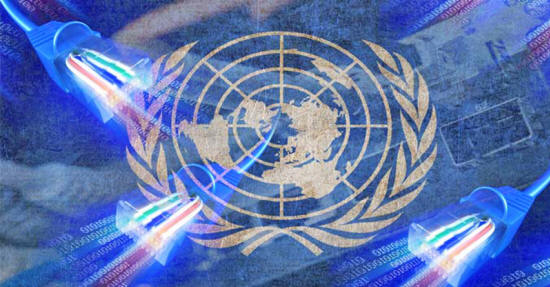|
from
TechnocracyNews Website
As such, it is an apolitical body that is happy to serve whatever form of governance exists as long as funding is received and salaries are paid. To a Technocrat, a world run by science and technology is better than any other form of governance.
That Technocrats have played a supporting role in world history is unquestioned. Scientists, engineers and technicians played a huge role in the Communist dictatorship in the former Soviet Union (for instance, see Science and the Soviet Social Order).
Technocrats likewise played a central role in support of Adolph Hitler and National Socialism (see Scientists, Engineers and National Socialism).
In both cases, the Technocrat goal was not necessarily Communism or Nazism, but rather the methodical exercise of science according to its Scientific Method. In other words, the process was more important than the outcome - and in both cases, the outcome was not questioned or resisted, but simply accepted.
The reason that ICANN formerly served the interests of the United States was simply that it answered to our government's judicial, legislative and executive branches. In other words, the U.S. held the umbrella over ICANN and that was enough to keep it working for our national interests and not for someone else's interests.
Obama changed that when he cut ICANN loose on September 30, 2016 by letting the Internet Assigned Numbers Authority (IANA) contract expire without being renewed. After expiration, we forever lost the right to renew the contract again.
So, ICANN is now a "free-agent" looking for shelter in the same way that a boll weevil looks for a cotton plant:
It is no secret that the United Nations is making a play to become host to ICANN.
In particular, the UN's International Telecommunications Union (ITU), run by the Peoples Republic of China, is expected to play the central role in this effort. However, whether it is the ITU or some other UN agency is immaterial because it will still be the UN in the end.
But, why the UN...?
Because it is the fountainhead of the plans and operations to establish Technocracy as the sole global economic system while destroying capitalism and free enterprise.
Technocracy is the issue here. Others know it as Sustainable Development or Green Economy, but the correct historical term is Technocracy...
In February 2015, the head of climate change at the UN, Christiana Figueres, stated,
What is unclear about this?
Sustainable Development, or Technocracy, is a resource-driven economic model regulated by energy rather than by supply and demand plus monetary currencies.
In 1938, the original Technocrats defined Technocracy as,
To achieve its Utopia goals, the UN must have ICANN's steering wheel and throttle. But while everyone is stressing over Internet censorship of Websites and the suppression of free speech, the real prize is completely overlooked:
In terms of "follow the money", IoT is expected to generate upwards of $3 trillion by 2025 and is growing at a rate of at least 30 percent per year. In other words, it is a huge market and money is flying everywhere.
If the UN can figure out a way to tax this market, and they will, it will provide a windfall of income and perhaps enough to make it self-perpetuating. Currently, the UN is financed by contributions from member states.
But, what is the IoT and who cares?
Examples go on and on...
ICANN issues the so-called IP addresses that are assigned to all these devices on a global basis. The original addressing scheme, IPV4, was based on four blocks of up to three digits each, punctuated with a period (e.g., 192.168.2.14).
This scheme allows for a discrete address for up to 16.8 million devices. A few years ago, IPV4 ran out of numbers, forcing Internet service providers, corporations and other organizations to improvise internal numbering systems, known as 'proxy servers', to issue safe addresses to devices within their own domain.
These systems are not only fragile, but they are bloated beyond reason and generally easy to hack.
To fix this, ICANN devised a new IP numbering system called IPV6, which adds two more blocks of numbers (e.g., 192.168.2.14.231.58). This scheme provides for 3.4×1038 addresses, or 340 trillion, 282 billion, 366 million, 920 thousand, 938 - followed by 24 zeroes...
There is probably a way to say this number, but I cannot imagine what it would be. It's somewhere beyond a trillion trillion unique numbers for every human being on earth!
Thus, IPV6 provides a way to assign a unique and directly addressable number to every electronic device on earth… for centuries to come.
As IPV6 rolls out to the world, the modified mission for ICANN will be to inventory and categorize the device attached to each IP address. For instance, all the air conditioners in the world would be directly addressable from a single list.
Likewise for all computers, all automobiles, all cameras, all phones, all refrigerators, all articles of clothing, etc.
Whoever has control over and access to this data will literally be able to control the entire world, down to the last minutiae - and that is the United Nations' exact mission:
But, this concept was set in history long before the technology existed.
The original bible of Technocracy, the Technocracy Study Course (1934), laid out the hard requirements necessary for its implementation:
As I thoroughly documented in my book, Technocracy Rising - The Trojan Horse of Global Transformation, the United Nations is indeed the engine of modern Technocracy and as such, it is acting in a perfectly predictable manner...
It seeks to establish a global Scientific Dictatorship where it controls all resources, all production and limits all consumption to its own liking.
These Technocrats will dutifully apply their pseudo-scientific methodology to every problem in the world, and simply issue instructions to the net to 'make it so.'
Yes, free speech will decrease and censorship will increase, but that pales in comparison to the real prize of the IoT that the United Nations desperately wants and needs in order to accomplish its own twisted goals.
Congress never understood this when they passively let Obama fail to renew our contract with ICANN. However, Obama and his globalist handlers understood it perfectly well, which makes the deception and treachery of it even worse.
Thanks to this scurrilous bunch, the world has just been sold into digital slavery, from which there may be no return...
Internet Crashes Will Be Hard to Stop After Obama's...
Internet Giveaway
from
DailyCaller Website
Someone successfully shut down many Websites Friday, attacking a crucial part of the Internet that has been made more vulnerable due to an Obama administration decision to surrender American control, according to experts.
Websites like,
...and many others were not working for a large portion of U.S. citizens Friday, after unknown hackers breached the servers of Dyn, a major domain name system (DNS) host.
Essentially the "yellow pages" of online addresses, DNS is the technical network that converts Web address names into numbers.
The cyber-crime, which was likely conducted by a syndicate, issued a distributed denial of service (DDoS) attack, which renders certain networks and Websites inaccessible to users.
The hacker(s) bombarded part of the internet's infrastructure by directing several devices and the respective unique Internet Protocol (IP) addresses (the numerical label assigned to every device) to targeted online systems.
Dyn's DNS became inundated with so much traffic, it could no longer facilitate the navigation of the Web.
Take Control Over Internet
Gov't Asked to Fight U.N. Efforts to Regulate Net
An international business trade association, which includes as its members law firms and major multinational companies, released a statement on Tuesday pressing the U.S. government to keep a lid on a foray into Internet governance from a United Nations agency that develops global telecommunications standards.
The U.S. Council of International Business (USCIB) released its statement ahead of the World Telecommunication Standardization Assembly (WTSA), which will convene from Oct. 25 through Nov. 3 in Yasmine Hammamet, Tunisia, to determine the trajectory of the International Telecommunications Union's Telecommunications Standardization Sector, or ITU-T, for the next four years.
While the USCIB acknowledged the "important role" of the U.N. branch in developing international standards that promote the interoperability of global telecommunication networks, the trade group expressed concerns about the ITU-T's efforts to expand its authority to regulate Internet policy.
The USCIB, which is made up of more than 300 multinational companies, law firms and business associations from a range of industries, counts among its board members executives from, According to the trade group's statement, an ITU conference in 2014 featured "sometimes heated discussions" about proposals that would have expanded the U.N. unit's role in international Internet governance.
While the USCIB said it was pleased that the U.S. government and other like-minded countries pushed back against these efforts, the trade group noted that since that conference, many ITU-T study groups have actively worked on Internet policy issues.
These issues include "over-the-top" services that are app-based, such as iMessage or WhatsApp, Internet protocol-based networks, interconnected devices known as the Internet of things, or IoT, and cybercrime.
The USCIB noted that it has already expressed concern about how the ITU-T's potential governance role,
In addition to overstepping its bounds, the ITU-T risks stretching already limited resources, according to the USCIB.
The U.N. agency's efforts would also be "wastefully duplicative," as such work is already being performed in existing multistake-holder, globally recognized, voluntary and consensus-based standards development organizations, the trade group said.
Speaking to the expansion of ITU-T, the trade group pointed to the agency's creation of a study group in June 2015 "directly against the wishes" of the U.S., Germany and the U.K.
As for countries that are more aligned with the ITU-T's efforts, the USCIB noted that Saudi Arabia and Russia have put forward a proposal that zeroes in on the potential marrying of database systems for product profiles - which can be used in pharmaceutical, automotive and other industries - with IoT tags to provide a secure mechanism for accessing a product's information.
While the USCIB noted that database systems have been used successfully in the past,
The trade group issued its statement a day after Google Inc, stepped up its support for transitioning U.S. stewardship of the internet's domain name system to a global community of stakeholders.
The search giant said the change will prevent governments from taking the lead in determining the online future, despite Republican warnings that foreign states would be empowered to limit Internet freedom.
|




